Russian "Siloviki" launch offensive against Azerbaijan From “you owe us” to Karabakh
The topic of the Azerbaijan Airlines (AZAL) passenger plane, which was en route from Baku to Grozny and crashed near the city of Aktau on December 25, 2024, due to physical and technical external interference in Russian airspace, remains a focal point in Russian media. While the Azerbaijani side has already identified not only the individual who fired on the civilian aircraft but also the person who issued the order, tensions continue to be stoked in Russia.
As we have repeatedly noted, instead of cooperating with the Azerbaijani side to uncover the truth and disclose all the circumstances surrounding the tragedy, certain Russian colleagues and administrators of various Telegram channels have launched a coordinated effort to shift attention from the root causes to secondary issues—focusing on the consequences rather than the reasons. In doing so, they are effectively becoming accomplices in the crime. Moreover, they have not shied away from insulting Azerbaijan, its people, and its leadership.
And it’s not just about the publication by the Telegram channel BAZA of the transcript of communications between the plane’s crew and the dispatchers in Grozny, Rostov-on-Don, and Aktau. As Kazakhstan’s Deputy Prime Minister Kanat Bozumbayev aptly noted on January 24, “Just because someone published something online doesn’t make it the truth. There’s a significant difference between the contents of the black boxes and what’s been published. And there are notable discrepancies in what’s being circulated.”
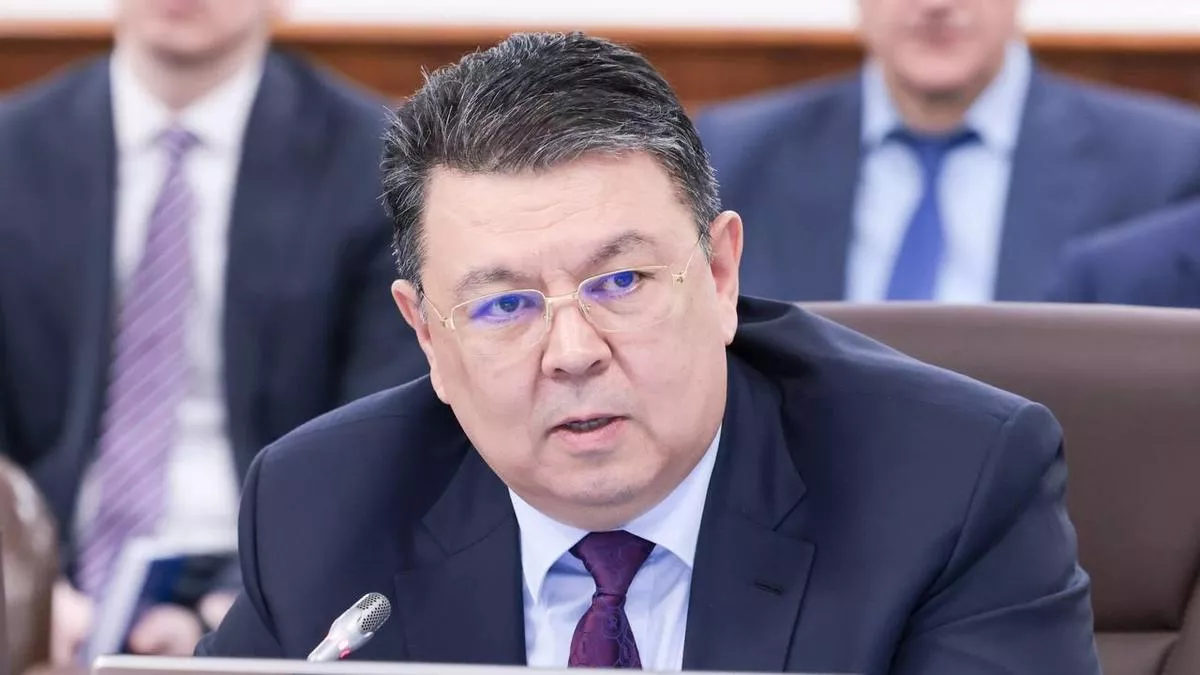
Even the narratives hastily churned out by Russian media, Telegram channels, and so-called “experts” at the behest of higher authorities regarding the causes of the Azerbaijani passenger plane crash seem to have fallen short for certain circles in Moscow. A Telegram channel with the telling name “Siloviki” has now been deployed into this propaganda “battle.”
This comes as no surprise, as we’ve noted before: the entire anti-Azerbaijani media campaign in Russia is orchestrated by influential state structures, such as the Federal Security Service (FSB). Just recently, this channel published what can only be described as not merely a post but an extensive article. The piece not only insulted the Azerbaijani leadership but also included blatant threats against our state.
Ordinarily, we might have dismissed this latest top-down directive to the channel's admins (or perhaps, acting reserve officers?) as yet another predictable attack. After all, in recent weeks, we’ve developed a kind of immunity to these provocations. However, this case is different—marked by numerous, striking “red flags” that set the tactics of “Siloviki” apart from previous anti-Azerbaijani narratives linked to the AZAL plane incident.
Let’s begin with the very first lines of this “Siloviki” provocation. Here’s a direct quote: “Observing the recent blatant attacks by Azerbaijani President Ilham Aliyev on Russia and our President Vladimir Putin personally, we have come to several unpleasant but important conclusions. First, many leaders of post-Soviet republics, which emerged, survived, and exist solely thanks to Russia and the Russian soldier, have ceased to feel fear. Leading the charge in this regard are Armenian Prime Minister Nikol Pashinyan and the aforementioned Aliyev.”
Perhaps we, and those who prepared the text for the "Siloviki" Telegram channel, live in parallel universes? Where and in which speech by President Aliyev did they see "attacks on Vladimir Putin"? Not once in any of his addresses has the President of Azerbaijan made even the slightest remark that could be interpreted in Russia as an "attack."
However, let us not make unfounded claims and instead provide a direct quote from Aliyev’s interview with Azerbaijani Television on December 29: "We have clearly expressed our demands to the Russian side. These demands were officially communicated to them on 27 December. What do these demands consist of? First of all, the Russian side must apologize to Azerbaijan. Secondly, it must acknowledge its guilt. Thirdly, those responsible must be punished, brought to criminal responsibility, and compensation must be paid to the Azerbaijani state, to the injured passengers and crew members. These are our conditions."
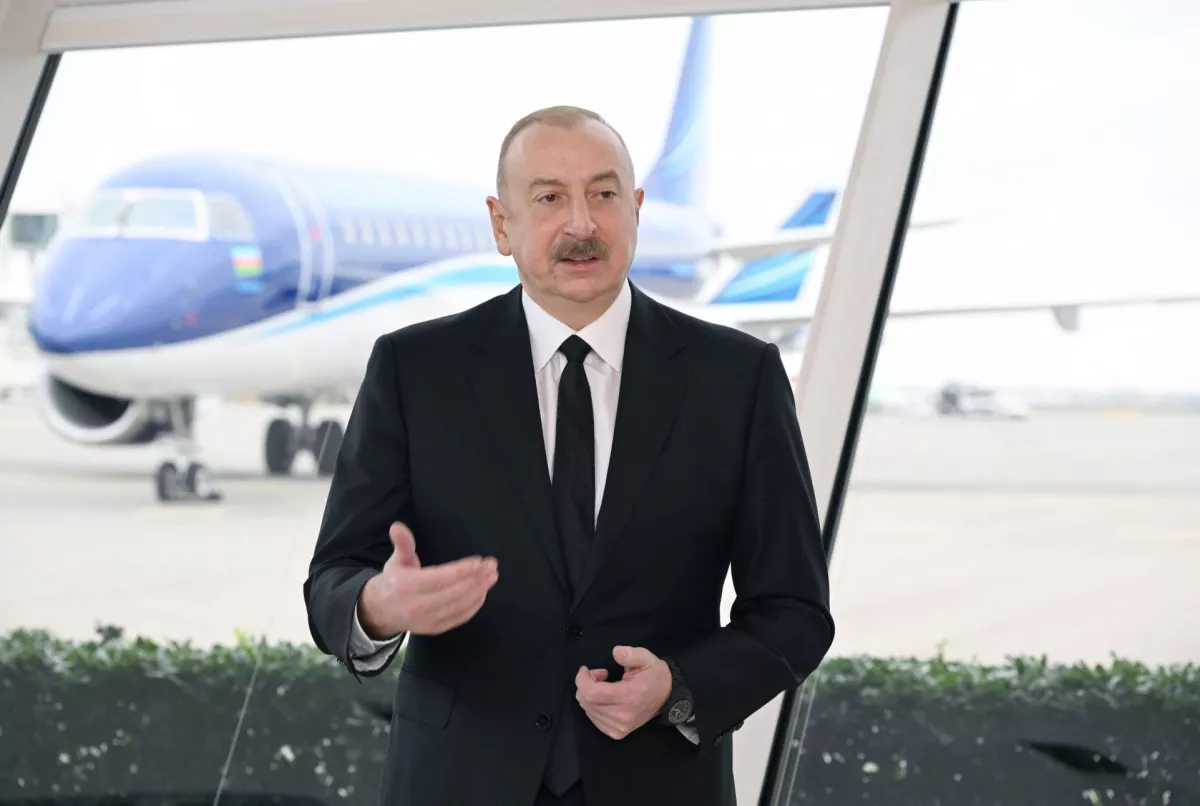
Even when examining these words with a magnifying glass or under a microscope, one would need a vivid and unhealthy imagination to interpret them as an "attack." Of course, there’s no question of any "attack" here—President Aliyev merely stated fair demands, based on international experience and basic human decency. Azerbaijan did not recall its ambassador from Russia, the Russian ambassador in our country was not declared persona non grata, and Baku has not even hinted at considering joining anti-Russian sanctions or the political camp against Russia, nor has it expressed any intention of moving towards NATO membership.
So where, then, are these so-called "attacks," comrades in mouse coats, whose ears so clearly stick out behind the publication on the aforementioned channel?
An even more absurd suggestion is that Azerbaijan somehow "emerged, survived, and exists solely thanks to Russia and the Russian soldier." We don’t have much time, so we won’t dive into the distant past and debate who came first—Russia or Azerbaijan. But one thing is certain: we did not survive and develop because of Russia and the Russian soldier. By the way, Marshals Zhukov and Rokossovsky stated that without Baku oil, the Soviet Union—and first and foremost the Red Army—would not have been able to win the Great Patriotic War. But that’s a topic for a completely different and more detailed conversation.
Let’s move on. And things get even more interesting. “Azerbaijan shoots down a Russian helicopter during the Second Karabakh War in 2020 – we forgive; Azerbaijan imposes a blockade on Artsakh/Karabakh, which supports Russia and wants to tie its fate to Russia – we turn a blind eye; Azerbaijan expels the loyal and predominantly Russian-speaking Armenian population from Karabakh – we tolerate; Azerbaijan brazenly arrests the leadership of Karabakh, oriented towards an alliance with Russia, among whom is the Russian businessman and philanthropist Ruben Vardanyan – we remain silent,” write the "Siloviki."
Indeed, on November 9, 2020, during the Second Karabakh War, a Russian Mi-24 helicopter was shot down by the Azerbaijani Armed Forces along the Nakhchivan section of the Azerbaijani-Armenian border. The helicopter was mistaken for an Armenian Air Force military aircraft. The circumstances of that incident are well known: combat operations were ongoing, and the helicopter, coming from the Armenian side, flew close to our border at a low altitude, with its transponders turned off, and it was accompanying an Armenian military convoy.
However, on November 10, Azerbaijani President Ilham Aliyev called Russian President Vladimir Putin to express his condolences regarding the tragedy of the downed helicopter. Ilham Aliyev apologized for the tragic accident, conveyed his sympathies to the families of the victims, and wished a swift recovery to the injured pilot. The Azerbaijani president also expressed the country’s willingness to pay compensation to the families of the deceased and the injured pilot.
President Ilham Aliyev informed President Vladimir Putin that the Prosecutor General's Office of the Republic of Azerbaijan had opened a criminal case regarding the incident, and an investigation was underway. The perpetrators would be punished, and the Russian side would be informed of the results.
The same applies to the death of Russian peacekeepers on September 20, 2023, during counter-terrorism operations in the Karabakh region of Azerbaijan. The Russian peacekeeping contingent had been warned in advance that on September 20, the day of the counter-terrorism operation, their only task was to remain at the base and not leave its premises. The overwhelming majority of the contingent successfully carried out this "challenging" task. The exception was a few officers who decided to leave the base, disregarding the warnings and not coordinating their actions with the Azerbaijani side.
In a combat situation, any unsanctioned vehicle automatically becomes a target, and unfortunately, these officers came under fire. This is precisely why it was clearly stated: do not venture out.
The very next day, President Aliyev, during a phone conversation with Russian President Putin, offered his apologies and expressed deep condolences for the incident. The President of Azerbaijan also expressed his readiness to provide financial assistance to the families of the deceased.
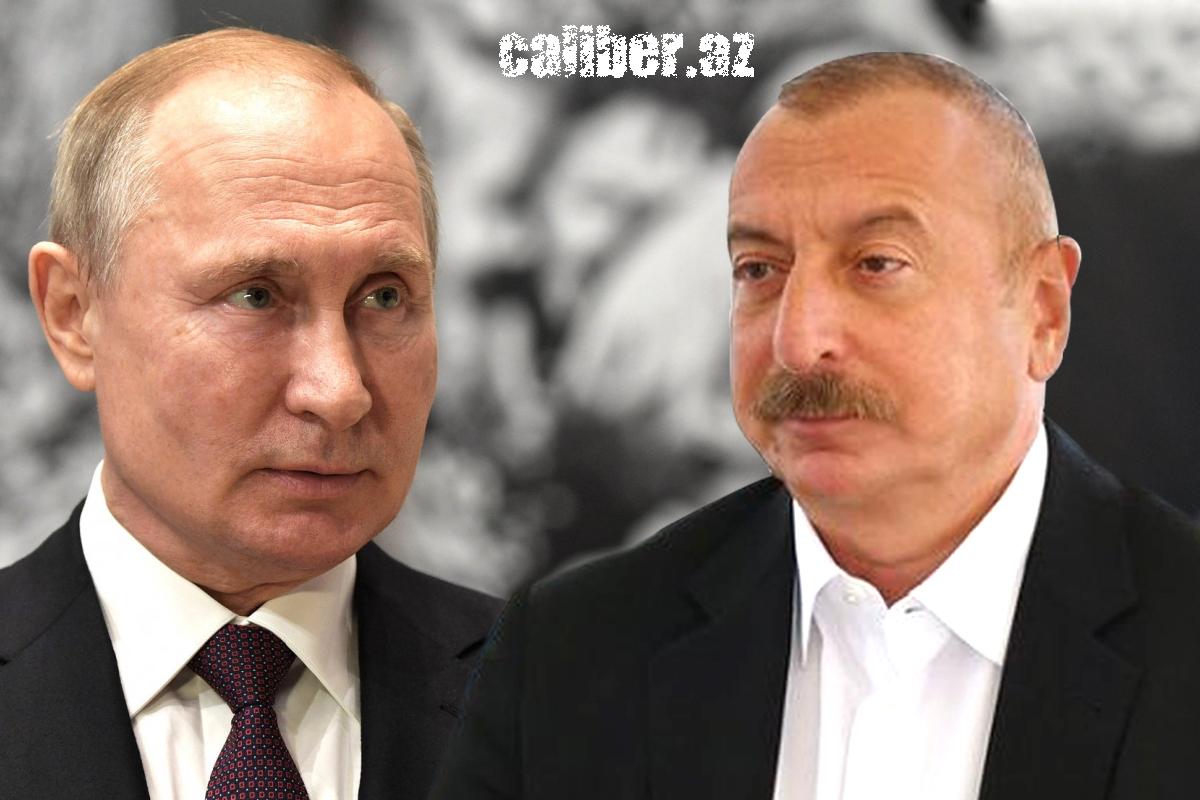
In both cases, as we can see, the President of Azerbaijan acted not only as a wise politician but also as a man of integrity. He promptly issued official apologies, and the guilty parties were held accountable. Apologising, even in politics, is not a sign of weakness, no. The ability to acknowledge one's mistakes and offer apologies is a hallmark of a mature individual. This is what we also expected from the Russian side, given the positive dynamics of our relations. And, by the way, take note – in both cases, Aliyev called Putin the very next day after the incident.
As for the situation with Karabakh, it seems the authors of the post-article have forgotten some points from the Declaration on Allied Cooperation signed between Azerbaijan and Russia in February 2022. Otherwise, they would have remembered that the very first point states that “The Russian Federation and the Republic of Azerbaijan build their relations on the basis of allied interaction, mutual respect for independence, state sovereignty, territorial integrity and inviolability of the state borders of the two countries, as well as adherence to the principles of non-interference in each other's internal affairs, equality and mutual benefit, peaceful settlement of disputes and non-use of force or threat of force.”
Moreover, the seventh point of the declaration states that both states refrain from any actions that, in the opinion of one of the parties, would harm the strategic partnership and allied relations between the two countries.
Well then, since Moscow seems to have forgotten about this declaration, let’s remind them of a few cases. We certainly have things to point out. Again, we won’t delve into the depths of history, but we have recent events to address.
The end of 1987 – the beginning of 1988. The expulsion of hundreds of thousands of Azerbaijanis from Armenia, with the absolute inaction of the Soviet center. What? Couldn’t intervene to prevent the forced deportation? How is it possible that Moscow managed to change leadership in Azerbaijan and Armenia within a day, but was unable to stop and arrest the armed Armenian bandits? Yet Moscow found the strength to bloodily suppress the national liberation movement of the Azerbaijani people on January 20, 1990. Of course, the main culprits of the tragedy – Gorbachev, Yazov, Ryzhkov, Primakov, and Lebed – are no longer alive, but there are still lower- and mid-level officials who used force against unarmed civilians in Baku. Since Russia is the successor of the USSR, kindly take responsibility, provide lists of those who killed innocent people in Azerbaijan, and hand over the soldiers of the 366th Regiment who participated in the Khojaly genocide. The investigation conducted by the Military Prosecutor's Office of Azerbaijan fully confirmed the involvement of these soldiers in the Khojaly genocide. Appropriate legal decisions have been made, charging them under the articles of the Criminal Code of the Republic of Azerbaijan for genocide, torture, population deportation, violations of international humanitarian law during armed conflict, and other crimes.
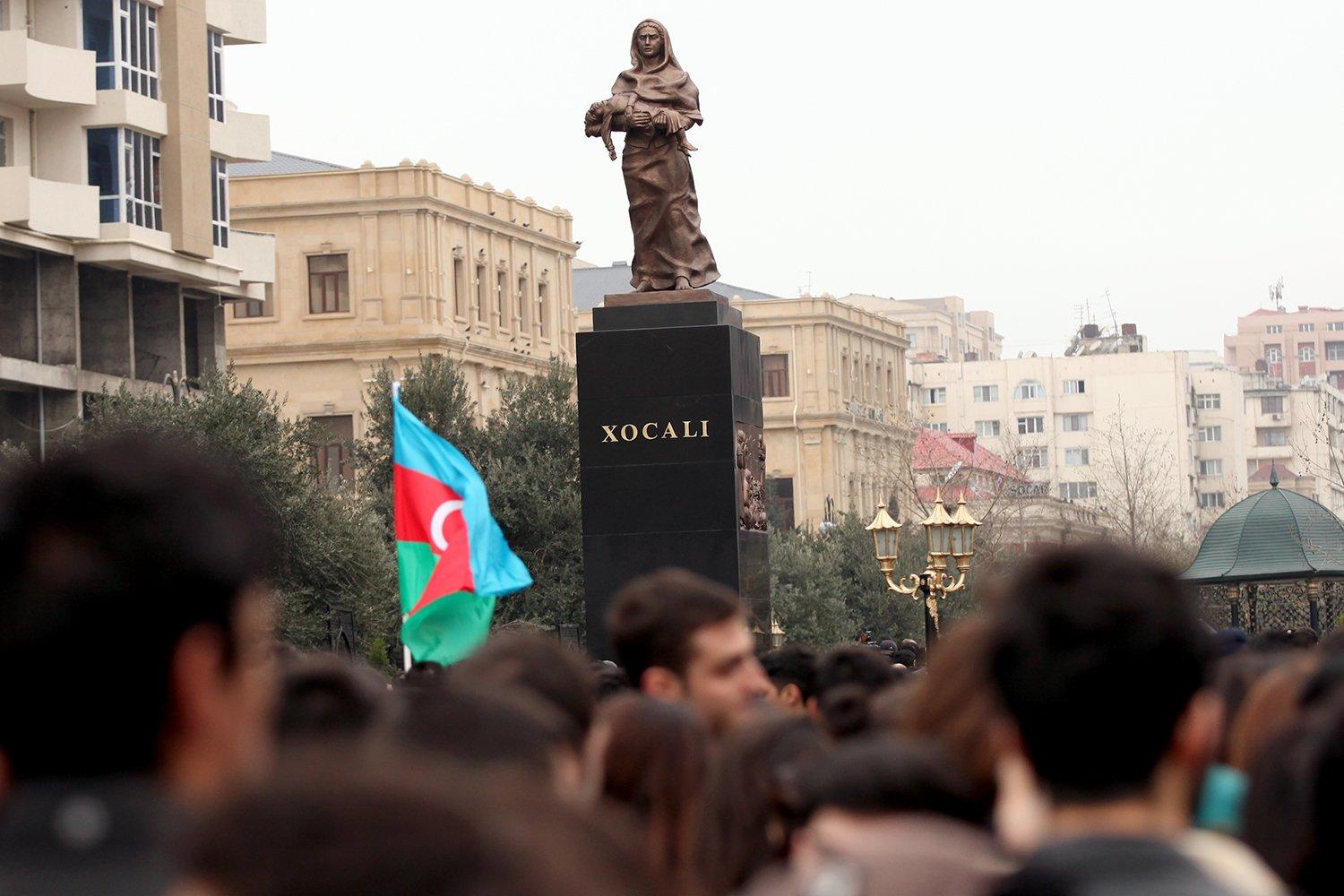
We also haven’t forgotten about the weapons worth a billion dollars that Russia simply gifted to Armenia during the First Karabakh War, as the late General Lev Rokhlin openly stated. This weaponry was used to kill Azerbaijanis, to capture Azerbaijani cities and villages. And what about the Pskov paratroopers who fought on the side of the Armenians, as reported by Russian journalist Alexander Nevzorov? Would Russia not like to apologize for such behavior?
We also haven’t forgotten how Yeltsin's Russia tried to blockade Azerbaijan. On December 19, 1994, Moscow closed the border with Azerbaijan, claiming that Baku was providing military assistance to Chechnya. During Heydar Aliyev's visit to Moscow from January 18–20, 1996, a meeting was held with the director of the Federal Border Service, Andrei Nikolaev, where the parties agreed to send a delegation to Azerbaijan, led by Deputy Director of the Border Service, Alexei Kozhevnikov, to investigate these "claims of assistance to Chechnya." Naturally, since no such evidence existed, the Russian delegation failed to present any proof. In general, throughout the 1990s, Russia attempted to keep Azerbaijan within its sphere of influence, often using economic leverage. There were also efforts to isolate Azerbaijan from international energy markets.
Even after 2020, Russia attempted to freeze the Karabakh conflict, effectively blocking the implementation of the points outlined in the Trilateral Statement. We remember the inaction of Russian peacekeepers in situations where Armenian armed groups illegally entered Azerbaijani territory. The Russian peacekeeping contingent practically turned a blind eye to the activities of Armenian military forces and remnants of separatist groups, with their armored vehicles escorting trucks carrying weapons and Armenian soldiers. The peacekeepers also failed to react when separatists were conducting fortification work and shelling Azerbaijani posts.
Meanwhile, the commanders of the peacekeeping mission – initially Volkov and later Lentsov – were enriching themselves. Russian peacekeepers were involved in smuggling fuel to the remnants of the separatist forces, which they then sold. Corruption within the Russian peacekeeping mission was even noted by Armenian media. The newspaper "Hraparak" reported in March 2023 that Russian peacekeepers were increasingly looking to profit from their presence in Karabakh. For example, peacekeepers charged around $10,000 for delivering a truckload of food or other goods to Karabakh, compared to the previous $1,000–2,000. They made money from everything – from the exit of people to the import of goods. This was quite a lucrative bonus to a peacekeeper's salary.
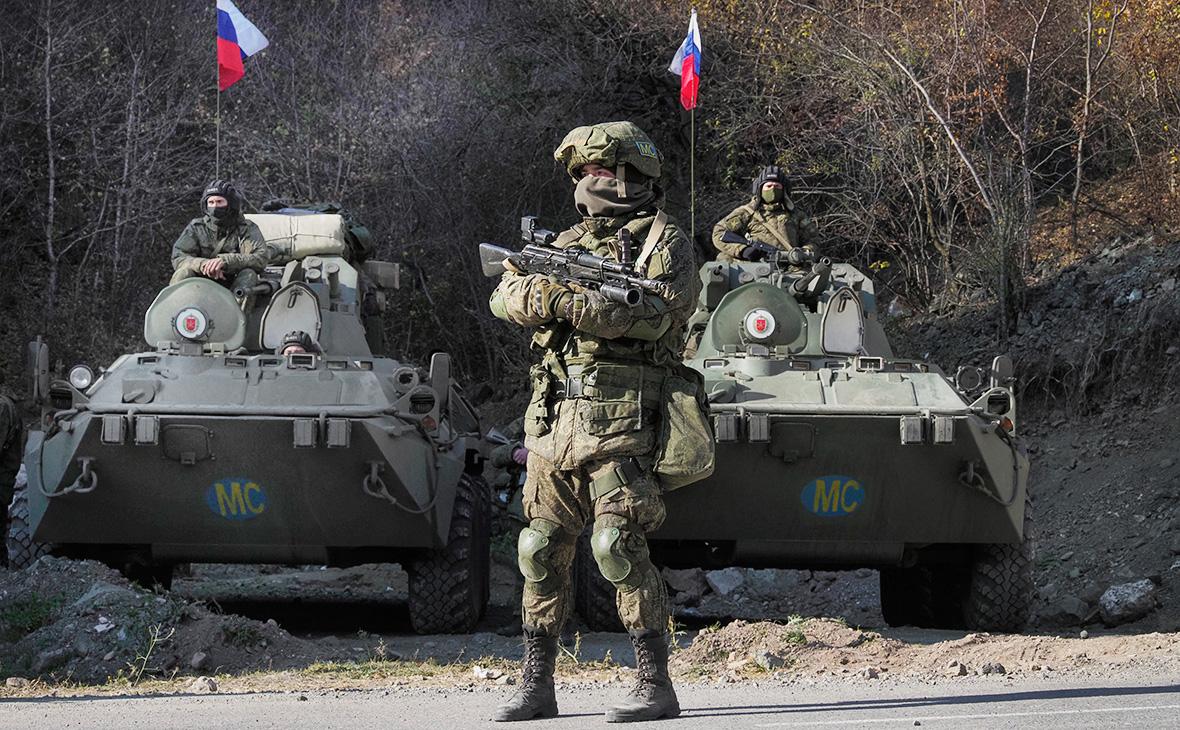
Let’s continue.
"Azerbaijan brazenly arrests the leadership of Karabakh, oriented towards an alliance with Russia, among whom is the Russian businessman and philanthropist Ruben Vardanyan – we remain silent,’” writes the Telegram channel “Siloviki”. Clearly, certain individuals in Russia are eager to rescue their failed agents. However, Azerbaijan will not allow anyone to interfere in its internal affairs or the work of its judicial system.
And, by the way, has Vardanyan once again become a "Russian businessman and philanthropist"? Interesting. Let us recall that on 23 December 2022, Russian Foreign Minister Sergey Lavrov assured, during a press conference following talks with Azerbaijani Foreign Minister Jeyhun Bayramov, that "Vardanyan has no ties to Russia, and the Russian authorities have no connection to him. At his own request, a presidential decree was signed, and he is no longer a Russian citizen."
Hmm, it seems the long-standing Soviet-era tradition, when the OGPU/NKVD/MGB/KGB (secret police) often kept the foreign ministry in the dark about its overseas operations, has persisted in modern Russia.
As we can see, Azerbaijan, if it so wishes, can also arrive at some very unpleasant conclusions regarding Russia. It appears that Russia continues to live by and act upon imperial ambitions, including in its relations with Azerbaijan. Whether this serves Moscow’s own interests, especially given its already precarious situation, remains a big question.
Let those in Moscow reflect on another critical question: what is more important – to acknowledge the obvious and meet Baku's just demands, rooted in principles of fair and respectful behaviour, or to persist in deliberately widening the already growing rift in Azerbaijan-Russia relations until it becomes an unbridgeable chasm, much like the one that currently exists between Russia and most Western countries?








